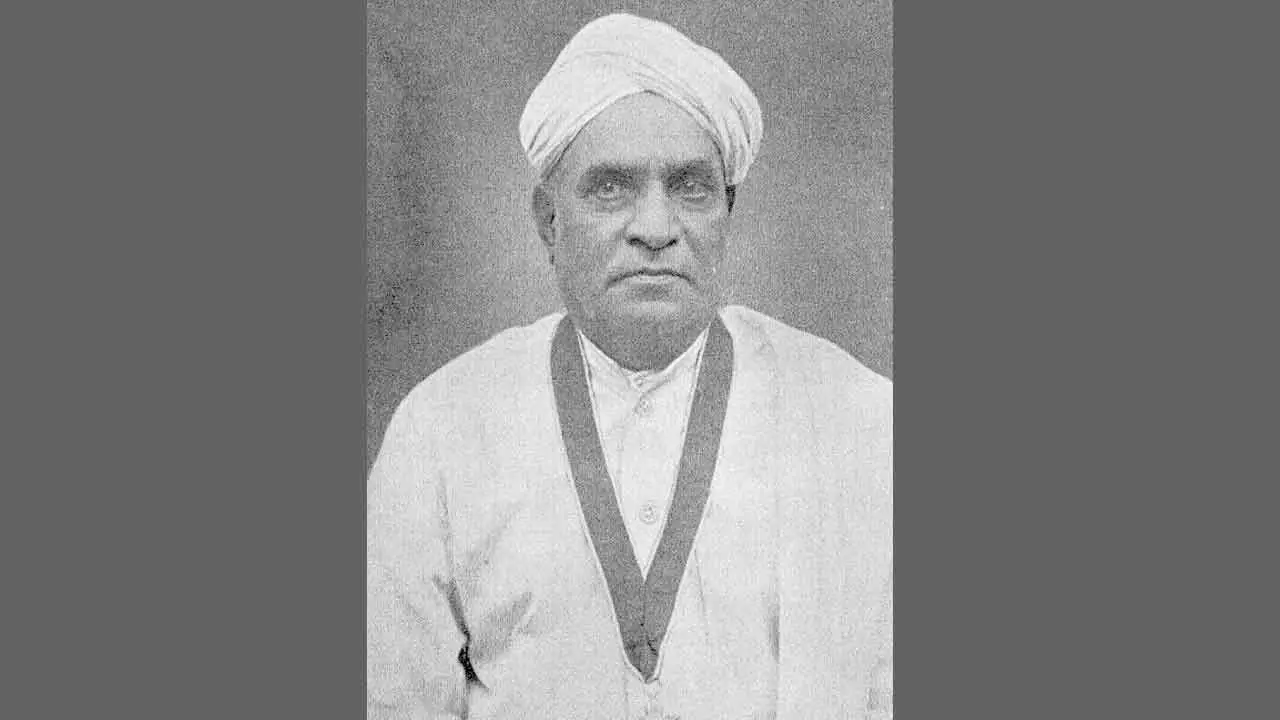Live
- GHMC proposes euthanasia for aggressive strays
- Over 6 lakh Olive Ridleys turn up at Gahirmatha
- Two women journos held for ‘defaming’ CM
- 25 lakh ‘Lakhpati Didis’ in next 5 years: Patra
- Villagers come together against illegal mining
- NALCO holds Customers’ Meet
- Notorious criminal injured in encounter
- Food safety officials inspect mangoes at Mozamjahi mkt
- Oppn seeks withdrawal of Bahinipati’s suspension
- Newly nominated member takes oath at SCB Board meeting
Telugu Language Day has an Odisha link


Berhampur: Andhra Pradesh observed Telugu Language Day (Telugu Bhasha Dinotsavam) on Thursday which commemorates the birthday of Gidugu Venkata...
Berhampur: Andhra Pradesh observed Telugu Language Day (Telugu Bhasha Dinotsavam) on Thursday which commemorates the birthday of Gidugu Venkata Ramamurthy (1863-1940). But many Odias and even Telugu-speaking people in Odisha do not know that it has an Odisha link. Gidugu spent 55 years of his life in Paralakhemundi, the district headquarters of Gajapati district. He was a renowned teacher in the FA class of Maharajah’s College, Paralakhemundi.
Gidugu was a Telugu writer and one of the earliest modern Telugu linguists and social visionaries during the British rule. He championed the cause of using a language comprehensible to the common man (‘Vyavaharika Bhasha’) as opposed to the scholastic language (‘Grandhika Bhasha’).
Gidugu was an eminent language visionary. As a pedagogue, he was decades ahead of his time. He recognised the primacy of oracy and the efficacy of the by now accepted ‘direct method’ of language teaching. For teaching Telugu, he wanted the spoken language to be the medium of instruction. This engulfed him in a war with the orthodox Sanskrit-educated pundits, which sometimes turned vitriolic. Due to Gidugu’s tenacity and commitment, ‘sishta vyavaharika’ (standard, current, and spoken language) gained currency and acceptance. To drive home his pedagogic, literary, humanistic, and modernising thoughts, Gidugu boldly, untiringly and persuasively used the press, publications, the public platform, social discourse and even pamphleteering, never once losing his cool and objectivity in argument.
Between 1910 and 1914, he went about talking, arguing, convincing, making rapid strides even in the face of stiff opposition.
Balakavisaranyam, Gadya Chintamani, Andhra Pandita Bhishakkula Bhasha Bheshajam and Vyasavali are his efforts to convince and plead with his opponents to see reason. Gidugu saw in his own lifetime people rallying round him. Gidugu gave a social base to Telugu literature and rendered services to the tribals, especially the Savaras, in Parlakimidi area of Srikakulam agency area and tirelessly worked for the development of tribal languages. He gave Savara language a script and prepared lexicons. During his research for Savara language, he had to travel in the forests resulting in excessive use of quinine due to which he became deaf.
His works include Kalinga (Odisha) Charitra. He developed language script and prepared lexicons for ‘Savara’ people (Munda tribe), Sora-English dictionary and Savara Patalu. Nicknamed as Pidugu rhyming with his surname, Gidugu was born at Parvatalapeta in Srikakulam near Vamsadhara river on the border of Odisha on August 29, 1863. His father Veeraraju worked as Revenue Inspector and died when he was just 12 years old. It was a struggle for him to survive. He passed his matriculation staying in his sister’s house and began his life as a teacher in Paralakhemundi. His great grandson G Sitapathy is still residing in their ancestral house at Keuta Sahi in Paralakhemundi.
The British government conferred on him the title of Rao Saheb not for loyalty to the Crown but for his service to the Savaras, pedagogy and Telugu. The British government also conferred on him the title of ‘Kaisar-i-Hind’ medal in 1933 for his services.
The Telugu Language Day is celebrated on his birthday on August 29. He passed away at the age of 76 years on January 22, 1940.

© 2025 Hyderabad Media House Limited/The Hans India. All rights reserved. Powered by hocalwire.com






